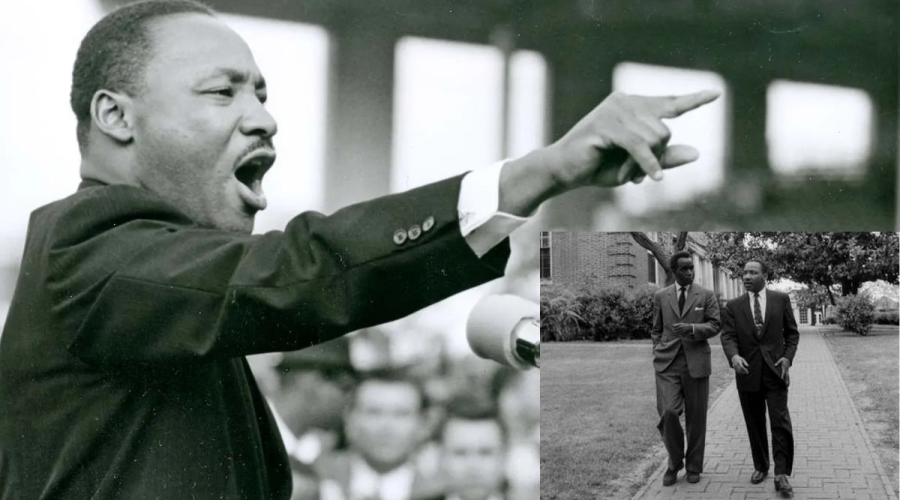King, a Resounding Voice for African Liberation

It is essential to recognize that while King's influence on Africa's independence struggle was profound, it was also reciprocal. African leaders and activists, in turn, inspired and supported the civil rights movement in America.
On this solemn day, April 4th, when we mourn the tragic assassination of Dr. Martin Luther King Jr., let us also remember his towering legacy that transcended borders and oceans. Though he led the Civil Rights Movement's struggle against racism in America, King's clarion call for justice and equality reverberated across the vast continent of Africa, adding fuel to the flames of independence from European colonial rule.
King formed strategic alliances with African leaders, using the political power of African Americans to consistently advocate for the cause of African nations seeking self-determination. His actions spoke volumes about the shared struggle against oppression.
In 1957, King and his wife Coretta were celebrated guests at Ghana's independence celebrations from British rule, personally invited by Prime Minister Kwame Nkrumah. Revered by African figureheads, King boldly stated to then-U.S. Vice President Richard Nixon that the same freedom Ghana celebrated would be sought in segregated Alabama.
Inspired by Ghana's birth, King penned the sermon "Birth of a New Nation," educating others about the "Dark Continent's" liberation movements across Egypt, Ethiopia, South Africa, Uganda, Nigeria, Liberia and Kenya. Ghana's story reminded African Americans that "freedom never comes easy...it comes through hard labor and toil, hours of despair and disappointment."
In 1960, King traveled to Nigeria to witness Nnamdi Azikiwe's inauguration as Nigeria’s first Presdient. Kind declared that African leaders saw ‘racism and colonialism must go, for they are based on contempt for life and human personality.’
King adamantly championed robust U.S. political action to dismantle South Africa's barbaric apartheid regime. En route to receive the Nobel Peace Prize in 1964, he proclaimed that if Britain and America enacted economic embargoes, "apartheid would end" and all South Africans could build their desired shared society.
Though still mired in America's civil rights struggle, King recognized black voters' growing power to influence foreign policy against the "racial tyranny" of apartheid.
It is essential to recognize that while King's influence on Africa's independence struggle was profound, it was also reciprocal. African leaders and activists, in turn, inspired and supported the civil rights movement in America. The solidarity between African and African American communities strengthened both movements and underscored the shared struggle for human dignity and rights.
On this day commemorating King's life certainly, but more profoundly his ultimate sacrifice, let Africans join in celebrating his voice, example and enduring legacy that propelled successive generations in the continent's independence struggles. His transcendent vision for universal human dignity fueled Africa's liberation movements, rendering King as a true partner.

 En
En  Fr
Fr  Ar
Ar